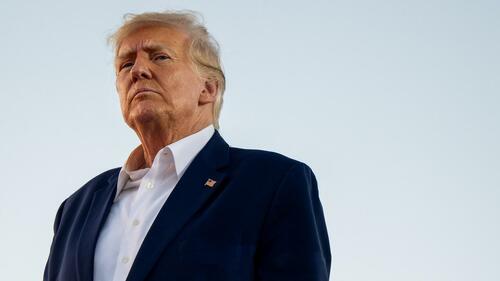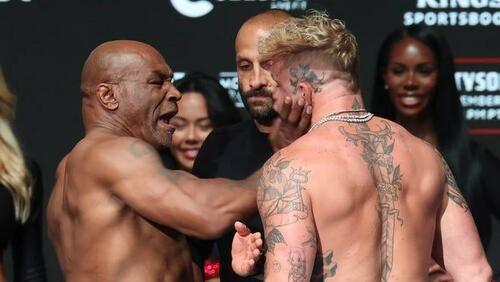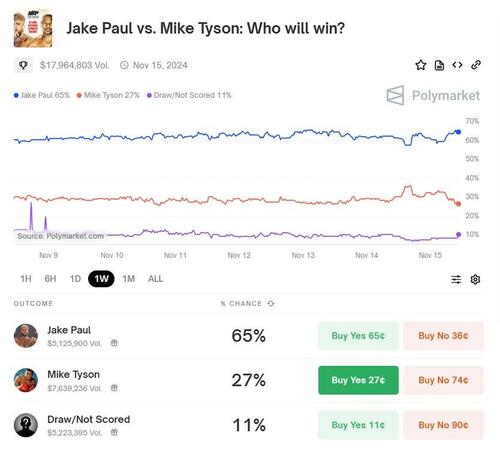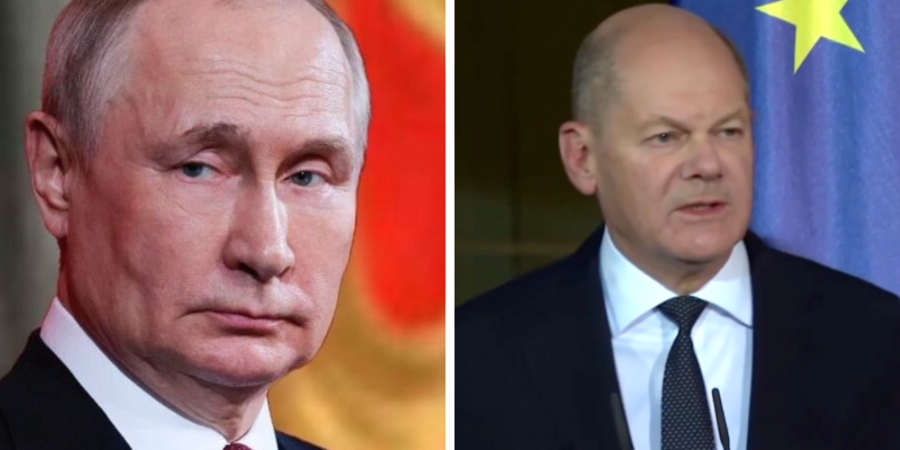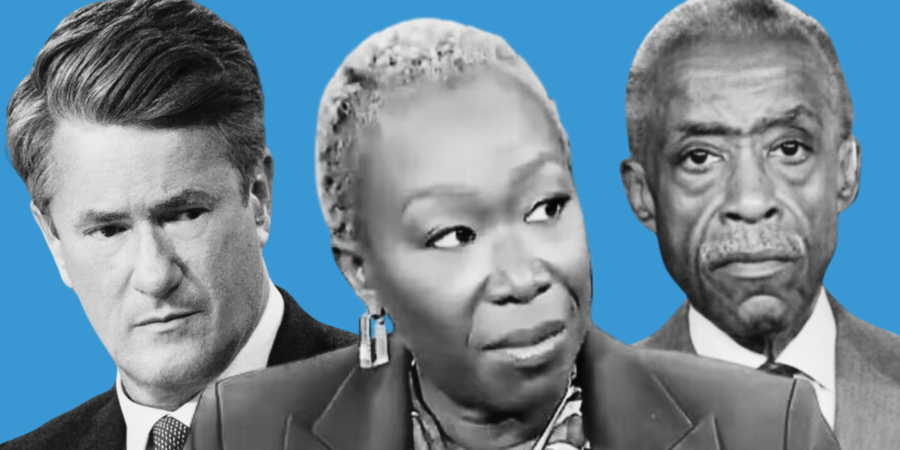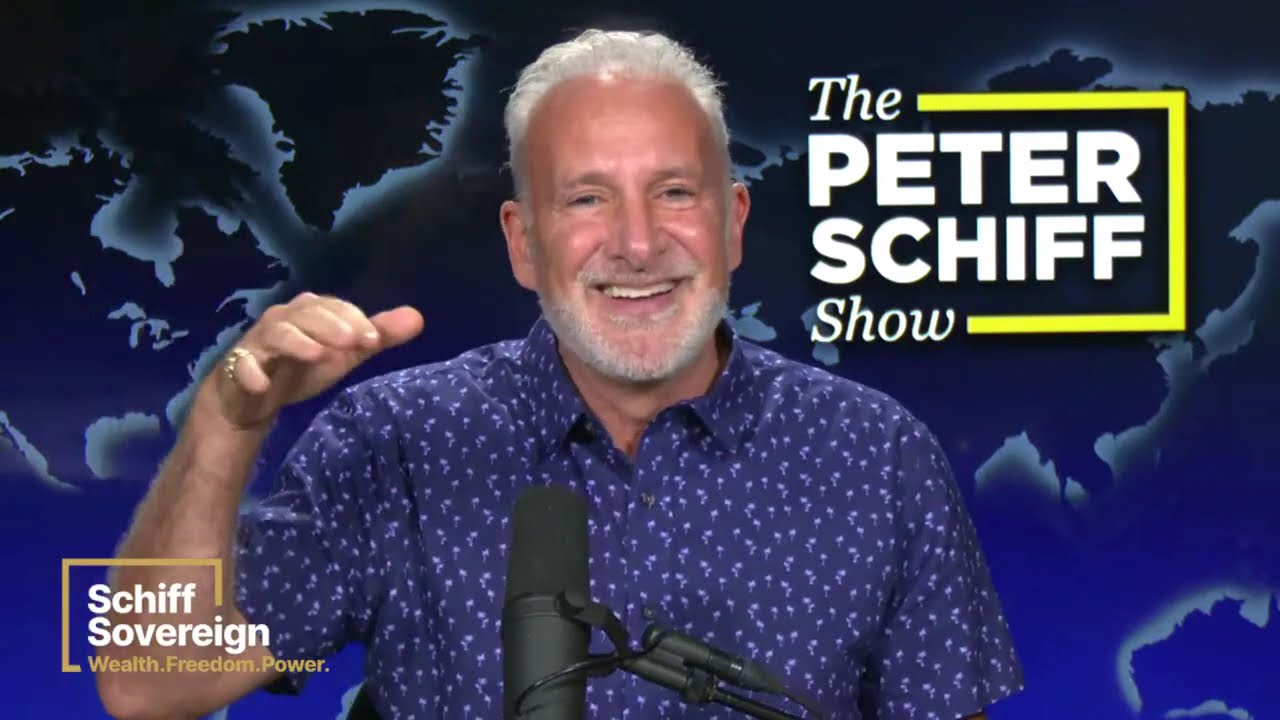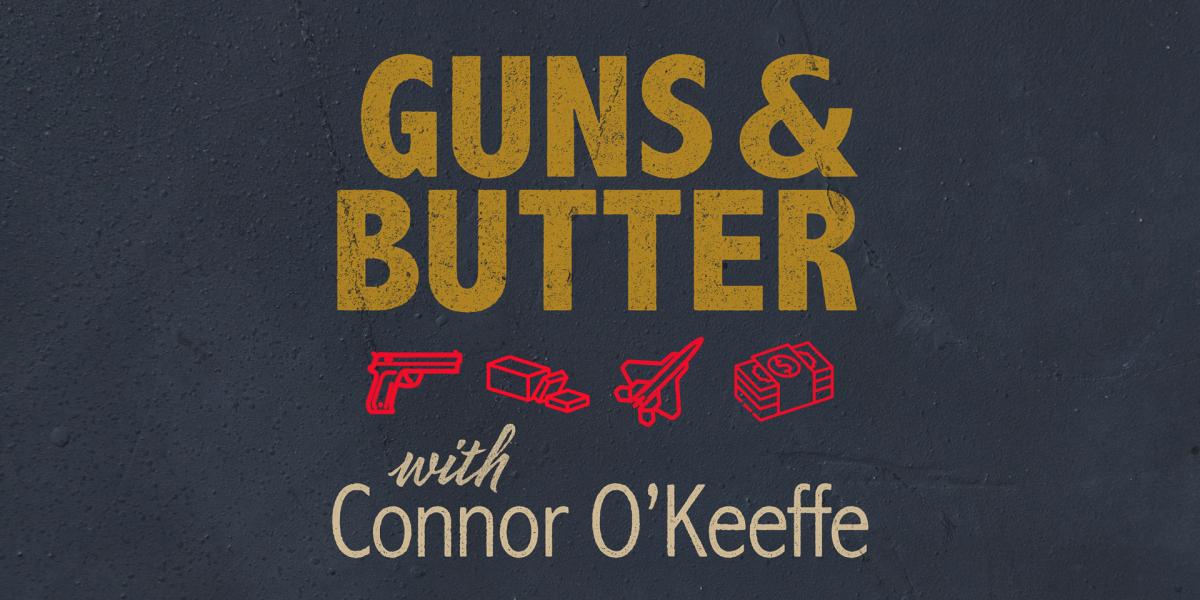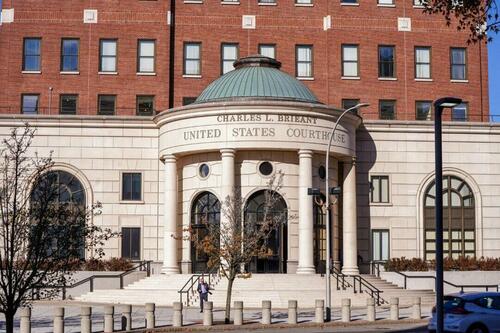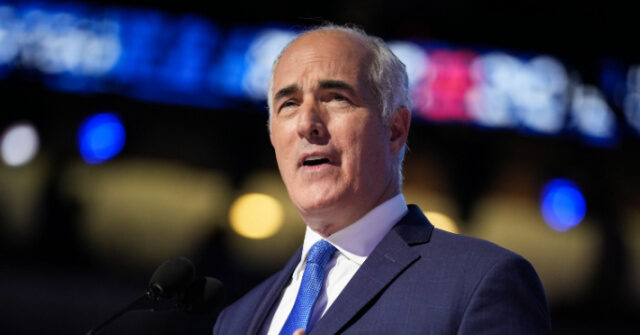FRONTLINES: Arizona mandates life imprisonment for child sex traffickers
60 percent of Arizona voters supported the proposition on Election Day.
French Court Orders Release Of Lebanese Man Convicted Of Killing US & Israeli Diplomats In 1980s
French Court Orders Release Of Lebanese Man Convicted Of Killing US & Israeli Diplomats In 1980s
A French court on Friday ordered the release of Lebanese pro-Palestine activist Georges Ibrahim Abdallah, Europe’s longest-held political prisoner, after 40 years in prison.
Abdallah, a former guerrilla with the Popular Front for the Liberation of Palestine (PFLP), was sentenced to life in prison in 1987 for his alleged involvement in the 1982 murders of US military attache Charles Robert Ray and Israeli diplomat Yacov Barsimantov.
The 73-year-old has appealed his conviction 11 times since becoming eligible for release in 1999. The court said the communist activist would be released on December 6 on the condition that he leaves France and does not return, French anti-terror prosecutors said in a statement to AFP.
The prosecutors said they would appeal the court’s decision, leaving the timing of Abdallah’s release uncertain.
The Lebanese activist, born to a Christian family in the northern village of Koubayat, has long maintained that he was not a “criminal” but “a fighter” who battled for the rights of Palestinians.
“The path I followed was dictated by the human rights violations perpetrated against Palestine,” he told the judges during his latest appeal for release.
Wounded in 1978 during Israel’s invasion of Lebanon, Abdallah, a secondary school teacher, joined the Marxist-Leninist PFLP, which carried out a series of plane hijackings during the 1960s and 1970s.
A year later, Abdallah, along with his brothers and cousins, founded his own pro-Palestine armed group, the Lebanese Armed Revolutionary Factions (LARF). The group had contact with other far-left armed outfits, including France’s Action Directe, Italy’s Red Brigades and the German Red Army Faction (RAF).
The Lebanese anti-Israeli Marxist group claimed responsibility for five attacks, including four in France in 1981 and 1982.
‘Honor of being accused’
In 1986, Abdallah was sentenced in Lyon to four years in prison for criminal association and possession of weapons and explosives. He was tried the following year for complicity in the assassination of Ray and Barsimantov, as well as for the attempted assassination of a third American diplomat in 1984.
In the murder trial, one of the French secret services’ sources was Abdallah’s lawyer, Jean-Paul Mazurier, who later revealed that he was an intelligence agent.
In court, Abdallah denied the accusation but declared: “If the people did not entrust me with the honor of participating in these anti-imperialist actions that you attribute to me, at least I have the honor of being accused of them.”
Abdallah was then sentenced to life in prison, a far more severe punishment than the 10-year sentence sought by the attorney general. His lawyer, Jacques Verges, who previously defended clients such as Venezuelan militant Carlos the Jackal, saw the verdict as “a declaration of war”.
A support committee was immediately formed, demanding Abdallah’s “immediate release”. The longest-serving prisoner in France has never expressed regret for his actions.
“He is doing well intellectually. He is an activist. He sticks to his guns, reads a lot and keeps himself very informed about what is happening in the Middle East. People write to him from all over the world,” his lawyer, Jean-Louis Chalanset, told AFP in 2022.
‘A political victory’
“I am the victim of a political decision,” Abdallah said shortly before the verdict on Friday.
Washington has consistently opposed Abdallah’s release, while Lebanese authorities have repeatedly called for his freedom.

Since 1999, the year he became eligible for release, all his parole requests have been rejected except one in 2013, when he was granted release on the condition that he be expelled from France.
When his request was granted that year, then-US Secretary of State Hillary Clinton contacted French Foreign Minister Laurent Fabius, saying in diplomatic cables revealed by WikiLeaks: “Although the French government has no legal authority to overturn the Court of Appeal’s decision, we hope French officials might find another basis to challenge the decision’s legality.”
French Interior Minister Manuel Valls then refused to proceed with the order and Abdallah remained in jail.
Chalanset told AFP that the court’s decision on Friday is not contingent on the government issuing such an order, calling it “a legal and a political victory”. However, under French law, an appeal can suspend the court’s decision, effectively deferring its execution.
Over the years, Abdallah’s fate has mobilized activists close to the French Communist Party and the far left, who have accused successive governments of employing relentless tactics regarding the political prisoner’s release.
Several communist municipalities have even made him an honorary citizen, and protests have frequently been held outside his prison in Lannemezan, in southwestern France. “Georges Ibrahim Abdallah is the victim of a state justice that shames France,” Nobel Prize-winning author Annie Ernaux said in a piece in the communist daily L’Humanite last month.
The Human Rights League, a leading French human rights NGO, has long maintained that Abdallah’s continued imprisonment violates human rights.
Tyler Durden
Sat, 11/16/2024 – 07:35
America Calls For Sanity And Prosperity
America Calls For Sanity And Prosperity
Authored by Thaddeus G. McCotter via American Greatness,
Donald Trump’s re-election as President of the United States, including an immense electoral college and popular vote victories, was the American people’s call for sanity and prosperity. For the incoming Trump administration, there is no time to waste in honoring the public’s mandate for change from the Obama and Biden administrations’ radical, dangerous, extreme, and disastrous policies.
The first step is to lower the country’s political temperature. It won’t be easy.
On the prevailing side, Mr. Trump’s supporters were elated by his victory and felt a palpable sense of relief at the reprieve it provided from the left’s ideological assault upon everything these God-fearing, patriotic Americans cherish. Yet, even as the election night celebrations continued, the calls began in earnest for the incoming administration to implement the most sweeping policies anyone to the right-of-center could conceive; and, yes, for “accountability” of bad actors, be it through political firings and impeachments, social ostracisms and “cancellations,” and criminal investigations that were expected to lead to indictments and prison sentences.
This is not unique in the annals of victorious presidential campaigns. Indeed, though one would be loath to acknowledge the irony, such demands were made by Democrats when Mr. Biden captured the White House in 2020. While Mr. Biden and his handlers and Congressional abettors indulged their leftist base with radical legislation, executive orders, and partisan political persecutions, it would behoove Mr. Trump and his supporters to recognize precisely how the American people viewed such unexpected surprises from “Lunch Bucket Joe from Scranton.” And, should they forget, all they need do is look at Vice President Kamala Harris’s electoral map.
This is not as easy as it sounds, for looking across the political aisle is an embittered and embarrassed Democrat Party. Lashing out at everyone but themselves for the abject failure of their fetid ideologies in matters of peace and prosperity, the left is not in a kumbaya mood—any more than are Mr. Trump’s supporters, who bear the scars of the Democrats’ systematic sedition against the first Trump administration; their despicable lawfare against him personally; and their pervasive slanders, smears, and attacks against his voters.
Already, under the guise of “offering olive branches,” the Democrats have sought to buy time to regroup, craft a narrative that they are the peacemakers, and wait for the first opportunity to rebrand Mr. Trump as an unstable, wannabe dictator who must be “resisted” by any means because it is justified by his being an existential threat to “our democracy.” It is a repeat of 2016, except in this instance, the size of Mr. Trump’s win has stunned and staggered the left, which necessitates their crafting breathing room to coordinate their counterattack.
Those blind to the Democrats’ stratagem will foolishly implore Mr. Trump to water down his rhetoric and goals to court the Democrats’ goodwill.
The GOP and, yes, Mr. Trump have gone down this dead end before and have learned a hard, valuable lesson not to repeat this mistake.
But this is not about enfeebling, but rather enabling the Republican-Populist agenda and movement.
Instead, as is his wont, Mr. Trump must grab the bulls**tters by the horns and offer the terms of political comity that will lower the country’s political temperature for the Democrats’ consideration.
The first and defining measure?
Announce that upon assuming office you will pardon Hunter, Jim, and Joe Biden for any crime they committed or may have committed.
Saying it and doing it will cement in the public’s mind that Mr. Trump is not only refraining from doing unto his political enemies what was done unto him but showing the magnanimity in victory of which his Democrat opponents have proven incapable. Armed with the moral high ground and the political insulation this beneficent act would provide, Mr. Trump will have significantly increased his already immense political capital that will be required to pursue and implement the significant policy reforms that he articulated throughout the campaign.
Of course, there will be pushback within his base by those who don’t accept that.
If Republicans do unto the Democrats what the latter did unto them, the public will view the GOP as hypocrites, declare a pox on both houses, and recoup the political capital Mr. Trump needs to achieve his agenda. Nothing would more hearten despondent Democrats.
Mr. Trump well understands this, and, nothing if not a leader, has the abundance of courage to empathize with his defeated opponents, for he has experienced the same feeling—in fact, exponentially more so, as he was the defeated candidate—and an incumbent president to boot. Equipped with this personal experience and acumen, he has the insight to recognize this singular chance to advance his agenda—one containing the very policies that, when implemented, will provide the very sanity and prosperity the voters emphatically demanded when returning him to the Oval Office.
Tyler Durden
Fri, 11/15/2024 – 23:25
Jake Paul Or Mike Tyson?
Jake Paul Or Mike Tyson?
Netflix is reportedly paying at least $60 million in purses to make history in its first-ever, live, non-pay-per-view sports broadcast tonight.
The streaming giant’s venture into live programming pits 27-year-old YouTuber-turned-boxer Jake Paul against 58 year-old ‘Iron’ Mike Tyson.
The big fight between “Iron Mike” and “The Problem Child” is scheduled to take place at AT&T Stadium, the Arlington, Texas home of the Dallas Cowboys.
The venue, which holds 80,000, has hosted some major boxing matches over the years, including multiple fights featuring former champion Manny Pacquiao current pound-for-pound No. 1 Canelo Álvarez.
Tyson will be fighting out of the red corner on Friday night, and weighs in at 228.4 pounds.
“This fight is not going to change my lifestyle financially,” Tyson said.
“I feel I can beat this guy.”
Paul will fight from the blue corner of the ring and enters the fight at 227.2 pounds.
“I’m here to make $40m and knock out a legend,” Jake Paul told interviewers.
The fight has garnered a great deal of attention as nobody knows how a 58-year-old Mike Tyson is going to look in his first sanctioned competitive fight since 2005.
Things got a littel heated at the weigh-in…
For now, the betting markets favor Paul over Iron Mike, with Tyson’s odds fading today…
Jake Paul’s Advantages:
-
Age and Stamina: Paul is significantly younger, at 27 years old, which gives him an edge in terms of stamina, recovery, and physical condition. Boxing is indeed a sport where youth can be a substantial advantage.
-
Recent Activity: Paul has been active in the ring, fighting several times in recent years. This regular competition keeps him in fighting shape and provides him with recent experience against diverse opponents.
-
Size and Reach: Paul has a height advantage and possibly a reach advantage, which could help him keep Tyson at bay if he chooses to fight more defensively.
-
Boxing Skill Development: Over his fights, Paul has shown improvement in his boxing technique, particularly in his footwork, jab usage, and defensive maneuvers.
Mike Tyson’s Advantages:
-
Experience: Tyson’s vast experience as a former undisputed heavyweight champion cannot be overstated. He knows how to fight at the highest levels, how to read opponents, and how to end fights quickly.
-
Power: Even at an advanced age, Tyson’s punching power is legendary. If he can land a clean shot, his power could still be devastating.
-
Motivation: This fight could serve as a significant motivator for Tyson to prove he still has what it takes, which might lead to an exceptional performance.
Fight Predictions:
Betting odds generally favor Paul due to his youth and recent activity, but there’s a significant portion of the public and some experts betting on Tyson, driven by nostalgia and his raw power.
-
Scenario 1 – Early Knockout: If Tyson can replicate his old explosive starts and land a significant punch early, he could potentially knock out Paul.
-
Scenario 2 – Endurance and Strategy: If the fight goes beyond the initial rounds, Paul’s superior conditioning and strategy might wear Tyson down, leading to a win either by knockout or decision.
-
Scenario 3 – Fight Integrity: There’s always the possibility in such high-profile, exhibition-like bouts that the fight might not be as competitive as it could be due to various external factors, but given the statements from both fighters and the sanctioning of the bout, this seems less likely.
Conclusion:
While many factors could play into the outcome, if one were to go by the majority of expert opinions and odds:
Jake Paul is likely to win due to his youth, recent fighting experience, and physical advantages. However, Mike Tyson’s power and experience make him a dangerous opponent, and if he can catch Paul with a solid punch, nothing can be ruled out.
The fight’s result might also depend on how Tyson has prepared, considering his age and health conditions.
Remember, in boxing, one punch can change everything, especially when it comes from someone with Tyson’s history.
* * *
Netflix will start coverage of the full fight card at 2000ET.
Who are the Jake Paul-Mike Tyson Ring Girls?
-
Lexi Williams – Instagram superstar; 1.4M followers; “I’m so excited to be a part of this moment,” she wrote on Instagram. One of the true titans of the Instagram modeling world
-
Sydney Thomas – Making her second career ring girl appearance
-
Raphaela Milagres – Brazilian model who worked the Jake Paul vs. Andre August fight in 2023
-
Virginia Sanhouse – Venezuelan model with 5.5M TikTok followers
-
Delia Sylvain – Veteran ring girl who worked the Jake Paul vs. Mike Perry fight in July.
Full Card:
-
Heavyweight: Mike Tyson vs. Jake Paul
-
Super Lightweight: Katie Taylor vs. Amanda Serrano for Taylor’s IBF, WBA, WBC and WBO women’s super-lightweight titles
-
Welterweight: Mario Barrios vs. Abel Ramos for Barrios’ WBC welterweight title
-
Super Middleweight: Neeraj Goyat vs. Whindersson Nunes
-
Super Middleweight: Shadasia Green vs Melinda Watpool for vacant women’s WBO super middleweight title
-
Super Lightweight: Lucas Bahdi vs. Armando Casamonica
-
Featherweight: Bruce Carrington vs Dana Coolwell
As PJMedia’s Scott Pinsker warns, make no mistake, Mike Tyson is still a master artist. He’s still an all-time great.
Jake Paul is scribbling with crayons.
On their merits, if Tyson has ANYTHING left, he will flatten Paul. It shouldn’t go more than a couple of rounds, two minutes or not. Mike Tyson on Testosterone Replacement Therapy is probably less like a guy pushing 60 and more like an athlete in his 40s.
If the fix is in, it’s almost certainly for Tyson to take the dive. That’s how it’s always been in boxing: The old lion makes way for the younger (and more marketable) lion.
Some boxing insiders suspect as much.
After all, Paul has exponentially more to lose: If Tyson loses, he’s still Mike Tyson, but if Paul loses, he’s done.
Tyler Durden
Fri, 11/15/2024 – 18:00
German Chancellor Olaf Scholz tells Putin to end war with Ukraine during phone call: report
Putin and his German counterpart had “a detailed and honest interchange of opinions about the situation in Ukraine.”
JACK POSOBIEC: ‘Get rid of medical commercials’
“Commercials used to be fun, and now you get all the ‘you may experience the side effects of elbows growing out of your ears.'”
ROD THOMSON: Incapable of reflection, Democrats double down after election shellacking
The party of diversity, equity and inclusion became radically exclusionist.
Schiff: Powell Can’t Address Stagflation
Schiff: Powell Can’t Address Stagflation
Peter caps off a very newsworthy week, in which the decisive Trump victory shocked the media class and another Fed rate cut was announced. Peter analyzes both events, arguing against the unbridled economic optimism of Trump’s supporters and criticizing Jerome Powell’s stance on Fed independence and his alarming lack of concern for a future of stagflation.
Peter starts by highlighting the inconvenient trade-off between taxes and government spending. Trump promises new tax cuts, but these will need to be offset by spending cuts, lest the national debt balloons even further out of control:
Trump would have to maybe have a fireside chat in front of the American public and level with them.
He can say, when I was running for president, I promised a lot of things.
I promised a lot of tax cuts… we really need higher taxes if we can’t get some serious cuts in spending.
And so that’s what we’re going to try. I’m going to ask Americans to pitch in and tighten their belts.
While both the Republicans and Democrats like to take credit for for the country’s economic growth, the reality is that much of this “growth” is an artificial boom induced and sustained by decades of expansionary monetary policy by the Federal Reserve:
The problem was we didn’t have a strong economy. We had a bubble. We had a fragile economy.
In fact, we’ve been blowing a bubble in this economy ever since the 1990s. Greenspan is the architect of this house of cards.
He’s been blowing all the air in and every president going back to Clinton has been hiding behind his bubble and has been taking credit for the fake economic growth that has been a consequence of this ever-expanding bubble.
With the stock market lifted by Trump’s success, Peter argues the best time to switch into US equities is when the aforementioned bubble pops. It’ll be painful in the short-term, but that’s when stocks will be a bargain:
The time to load the boat with US stocks is not when they’re historically expensive. I’m waiting for blood in the streets. I want the collapse to happen…
Now, I know when we initially do that and the economy is in recession and everybody is pessimistic, that’s when I’m going to be optimistic, because I’m going to know that this is the bitter tasting medicine that we should have swallowed a long time ago.
Pivoting to the Fed rate cut, Peter points out that the Fed may have cut rates by less than they would have had Kamala Harris been elected instead of Donald Trump:
You would assume that if we’re going to have a stronger economy, the Fed should reconsider the rate cuts, maybe even pause or hike rates.
I thought, well, there’s no chance the Fed’s going to do that. Trump would go ballistic—they’re going to cut. And that’s exactly what they did.
One reason the dollar has been so strong is that people are thinking, well, maybe the Fed won’t cut as much now that we’re expecting a stronger economy.
Peter takes aim at Jerome Powell’s political cowardice, in which he uses the Fed’s independence as an excuse to avoid criticizing bad fiscal policy:
Being independent doesn’t mean you have to keep your mouth shut and you can’t speak your mind and you can’t be critical.
It actually means the opposite of it.
When you’re independent, you’re not influenced by politicians, so you could say whatever the hell you want to say.
You can criticize whoever you want to criticize, and that is exactly what his job is.
At Thursday’s Fed press conference, Powell dodged a question about the possibility of stagflation. Peter sees this as a major gaffe:
He [Powell] kind of says, “Well, our plan for stagflation is to hope there is no stagflation.”
Then he laughed, realizing how ridiculous that sounded.
I mean, what kind of plan is that? Your plan is to hope it doesn’t happen. .. Because obviously, it’s possible.
So, what are you going to do? That’s the question, not what you hope will happen. What’s your plan?
They’ve got no plan. That’s why they hope it doesn’t happen.
But, you know, Murphy has a law, right?
Anything that can go wrong will go wrong. We’re going to have stagflation.
Donald Trump’s has likely halted economic progressivism from corrupting the White House, but with the debt still expanding and the Federal Reserve still setting price controls on interest rates, the economy is far from healthy.
Tyler Durden
Fri, 11/15/2024 – 07:20
The Context Behind Donald Trump’s “Takeover” of the American Right
The current civil war on the American right is only the latest chapter in a much older story.
How Trump Could Transform Indo–Pacific Policy
How Trump Could Transform Indo–Pacific Policy
Authored by Andrew Thornebrooke via The Epoch Times (emphasis ours),
President-elect Donald Trump’s second term in office will likely bring sweeping changes to the nation’s Indo–Pacific policy and ongoing strategic competition with China.
Leaders throughout Congress and the national security space are therefore preparing for an era marked by increased confrontation as the administration pushes back on the Chinese regime’s aggression in the region.
Rep. John Moolenaar (R-Mich.), chair of the House Select Committee on the Strategic Competition Between the United States and the Chinese Communist Party, said he expects a second Trump administration to adopt a firm approach to foreign policy in the Indo–Pacific.
“During Trump’s first administration, peace through strength was at the forefront of American foreign policy,” Moolenaar said in a statement shared with The Epoch Times by the committee’s staff.
That strength, Moolenaar suggests, would extend to the U.S. allies throughout the Indo–Pacific, where Trump is expected to push regional partners to increase their defense spending in order to receive continued U.S. support.
“The entire free world must act with urgency to invest in its collective military power in order to deter conflict, support global prosperity, and defend our values against CCP [Chinese Communist Party] aggression,” Moolenaar said.
Those increased expectations of Washington’s allies could bring both risk and opportunities to U.S. relations in the region as the nation attempts to pressure regional partners into adopting a more forward-facing defense posture.
They will also likely bring increased volatility to the United States’ relationship with China and the CCP, including by shaping the potential for an armed conflict between the two superpowers over the future of Taiwan.
Taiwan Flashpoint
The CCP claims that Taiwan is part of its territory. Though the communist regime has never controlled the island, CCP leader Xi Jinping has made unifying Taiwan with the mainland a legacy issue of his rule and has ordered the Party’s military wing to prepare for a potential conflict by 2027.
The United States does not officially support Taiwanese independence or the forceful unification of the two territories. But, since 1979, Washington has maintained obligations to sell Taiwan the arms it needs to maintain its self-defense.
Likewise, the United States has maintained a policy of so-called strategic ambiguity since 1979, in which it will neither confirm nor deny its willingness to enter a military conflict to defend Taiwan from CCP aggression.
However, U.S. political and military leadership have signaled that they are preparing for such an eventuality. To that end, Chief of Naval Operations Adm. Lisa Franchetti issued a guidance document in September ordering the Navy to prepare for war with China by 2027.
The United States is not interested in preserving Taiwan’s independence simply because of its democratic government. The island nation is responsible for manufacturing more than half of the world’s semiconductors and nearly 90 percent of the globe’s advanced semiconductors, used in electronic components for everything from laptops to pickup trucks to hypersonic missiles.
To that end, Trump’s transactional approach to international security deals has thrown Taiwan’s central role in the global economy into question.
In July, for example, Trump called for Taiwan to pay more for its defense, though the island is already one of the largest purchasers of arms from the United States.
Since 1950, Taiwan has spent more than $50 billion on U.S. weapons, making it the fourth largest purchaser of U.S. arms behind Japan, Israel, and Saudi Arabia, according to the Council on Foreign Relations.
Trump has also suggested that military force would not be necessary to protect Taiwan from the CCP and has instead claimed that a severe enough economic threat to China would prevent an invasion of Taiwan.
Russell Hsiao, executive director of the Global Taiwan Institute think tank, told The Epoch Times that Trump’s ambiguous stance on Taiwan’s defense could invite further CCP attempts to sway American and Taiwanese decision-makers away from aggressively defending the island’s de facto independence.
“The president-elect has already indicated that he would be less clear than President Biden as to whether he thought the United States had an obligation to come to Taiwan’s defense if China decided to invade the island,” Hsiao said.
“Washington and Taipei should be prepared for Beijing to exploit this in its cognitive warfare campaigns and quickly develop their own counter-strategies.”
Hsiao noted, however, that Trump was “unencumbered by past precedents and norms,” which could help him to strengthen the bilateral relationship by overcoming the self-imposed restrictions of the past that have limited U.S. involvement with Taiwan on the international stage.
As such, he said, asking for Taiwan to accept a larger share of the financial burden for its defense could be an opportunity for Taiwanese leaders to demonstrate their resolve and, in the process, garner renewed U.S. support through access to increased arms sales.
“President-elect Trump is expected to emphasize burden-sharing in security ties with allies and partners,” Hsiao said.
“While this may be generally seen in a negative light by most allies and partners, it should be noted that this could lead to it being more forward-leaning in providing a wider variety of arms to Taiwan suited to a range of potential contingencies.”
Trump Expected to Deliver Security—at a Price
Taiwanese leadership responded by saying the island was committed to taking on more responsibility and defending itself from CCP aggression.
Taiwanese leadership may consider making a substantial arms purchase early on in the second Trump administration as a sort of down payment to demonstrate its resolve to the administration.
John Mills, former cybersecurity chief in the Office of the Secretary of Defense, said that ensuring a robust defense budget would help Taiwan to make sure U.S. support did not flag and that military expenditure was “the primary metric” used by Trump to determine an ally’s willingness to defend itself.
“We have a very poor track record when we carry the burden for other countries,” Mills said.
“All that is being asked is at least 2 percent of GDP spent on defense and, in reality, 4 to 5 percent is the new 2 percent.”
At present, Taiwan spends about 2.4 percent of its GDP on defense, according to data compiled by the CIA.
Other U.S. allies in the region are more varied. South Korea spends about 2.7 percent of its GDP on defense, and the Philippines spends only about 1.5 percent. Japan is in a unique situation because it is currently spending 1.4 percent but is in the middle of a historic reform of its military policy and strategy, which will see that figure rise to at least 2 percent in the coming years.
Yet none of those numbers at their current levels are likely to please the incoming Trump administration if it is truly so set on encouraging the nation’s allies in the Indo–Pacific to take point on confronting the Chinese regime’s global expansion.
There may be some wiggle room, however, as the administration looks to use less traditional pathways to secure its international interests.
Sam Kessler, a geopolitical analyst at the North Star Support Group risk advisory company, said that a hallmark of the first Trump administration was its ability to think outside of the box, and that would likely only increase now, given Trump’s growing distance from the old guard of the Republican Party.
“The Trump administration in the first term was innovative, proactive, and resourceful in the deals and agreements they crafted, so expect something similar, as well as a little predicted unpredictability, too,” Kessler told The Epoch Times.
“This may be done in the form of trade deals, security arrangements, foreign investments, and policies that may help reduce the threat levels, too. It could be a wide range of things that could be utilized.”
On that note, Kessler suggests that Trump would revisit trade deals and strong economic measures when confronting China and might prove surprisingly willing to take a proactive stance in the bilateral relationship with China.
Such economic deals, he said, could have the secondary objective of smoothing out regional tensions and preserving allied security while holding the CCP accountable economically.
“We may end up witnessing a series of deals and agreements that may be related to multiple issues that are non-related to the original purpose of a negotiation in order to reduce tensions between multiple parties in other areas,” Kessler said.
In all, it is clear that U.S. allies in the Indo–Pacific will be expected to contribute more to the common defense in the region, and such efforts will not go unseen.
With that much in mind, Mills said that he believes the likelihood of an armed conflict would drop, as Trump’s expectations for all nations in the Indo–Pacific would be clear.
“The likelihood of conflict in the western Pacific decreases significantly under Trump,” Mills said.
“Why? Because he’s showing clarity and resolve at all times. Clarity and resolve help prevent war. Lack of clarity and resolve creates war.”
Tyler Durden
Thu, 11/14/2024 – 23:50



